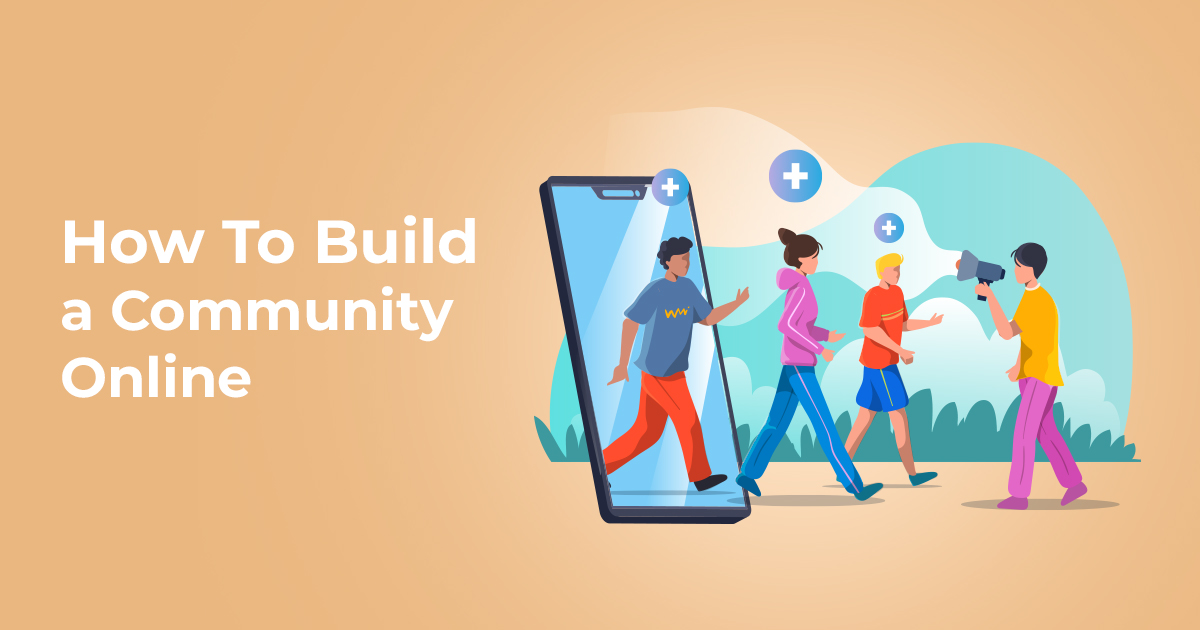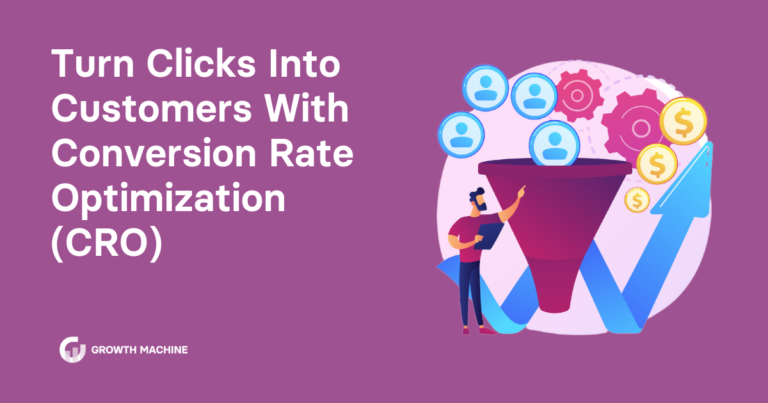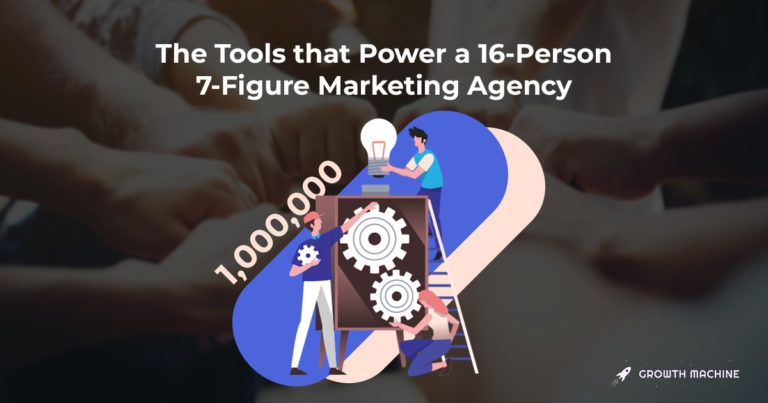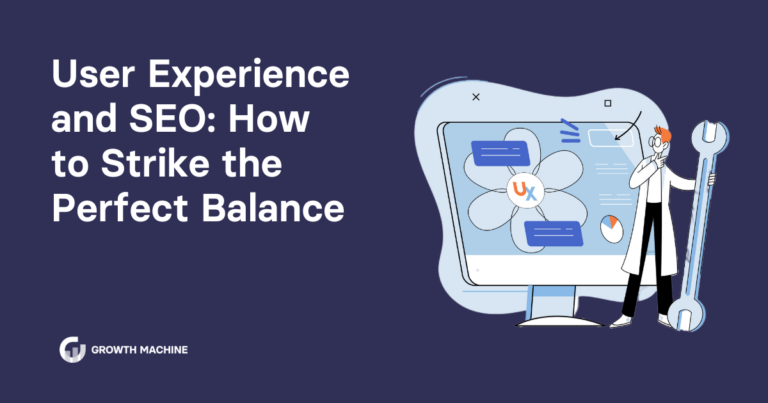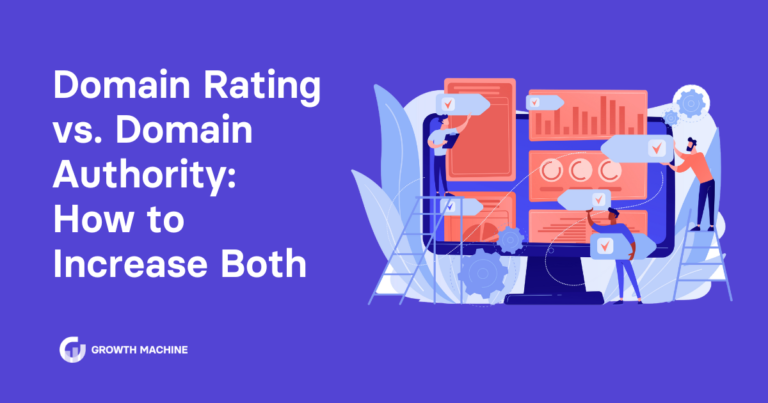How To Build a Community Online
Building an audience is not the same as building an online community. Read that sentence again.
When growing an audience — particularly one that lives on social media — you can easily lose yourself in the algorithm game, or get distracted by your follower count, rather than engagement. But building a community means creating a space where real people can discover answers to real problems.
On an episode of the Growth Machine Marketing Podcast, we spoke to Tim Stoddart about the key differences between building a community versus building a following. Tim — writer and partner of Copyblogger and founder of Sober Nation, the leading global community for drug and alcohol recovery — always sought to create community first, and a following second.
Below, we explain how to build an online community, where a community takes place, and how to monetize your community (if that’s your goal).
What Is an Online Community?
Before we talk about the mechanics of community building, let’s revisit what an online community is.
An online community is no different than a “real life” social community away from your phone or computer. It’s a shared space where a group of people come together to share common interests, learn from one another, and find a sense of belonging. You may take part in a fitness community (group workouts or a running club), a work community (co-working space), or a hobby community (a writers’ meetup).
In each of these communities, every person who takes part gets something out of it. If 15 people join together every Tuesday night for a local running group, every runner reaps the benefits of jogging five miles.
This is what separates building an online community from simply playing the algorithm game.
When you focus too much on the metrics alone, like social media likes and follows (and how to capitalize on these KPIs), the benefits of participating in the channel can become too one-sided. If a social media influencer is compensated for posting, that compensation benefits the influencer alone, not the entire group.
Tim noted this difference when he first started blogging in 2010. Ten years ago, many bloggers grew blogs to attract advertisers. The main key performance indicator (KPI) was ad money. Very few bloggers (and fewer companies) blogged simply to build quality content to answer questions from potential customers, thereby building an authentic audience. So, when Tim began writing about his sobriety, he created a space for like-minded people to share their experiences — and in doing so, he laid the foundation for a new online community.
How to Build an Online Community
Building a community is nothing more than creating a space where community members can discuss their shared interests. So when you set out to build your own community, keep the following objectives in mind.
1. Find Your Purpose
When building your online community, your focus should be on finding ways to provide a benefit to community members — not to yourself.
When Tim built Sober Nation, he wanted to create a place where people could recover from addiction. He wrote about his experiences with drugs and alcohol and invited others to share their own. They shared a clear purpose — to get sober.
To find your purpose, brainstorm the different types of online communities you’re a part of — what’s your reason for being there? Maybe you enjoy having a free community to swap investing tips so you can retire early. Perhaps you’re an active member of your neighborhood’s Buy Nothing group so you can reduce your carbon footprint and decrease your spending. Or maybe you catch every webinar hosted by your favorite Instagram coach to empower you to grow your own business.
Now: What do you care about enough to build and maintain your own online community? What is your key differentiator? The best communities are led by moderators who have a strong sense of purpose, and therefore attract an engaged community with that same purpose.
2. Strive for Conversations Over Competition
The internet is filled with fierce competition. Successful online communities understand that there’s a serious benefit to engaging (or even partnering) with their competition.
Tim learned this lesson when building Sober Nation. As a player in the healthcare field, Tim was quick to realize that healthcare was one of the single most competitive spaces online. Rather than trying to exclude or avoid his competition, he chose to lean into it. He realized that these conversations would take place regardless — it was just a question of whether they would take part on his platform.
Case in point: Tim is a content marketer (and partner) at Copyblogger. At Growth Machine, we could think of him as a competitor, but we see Tim as an ally. Tim interviewed our then-Head of Marketing, Amanda, on his show, the Tim Stodz Podcast, and we returned the favor by interviewing him here at Growth Machine. In both instances, we each benefited from the conversation and published episodes that helped our respective communities learn.
3. Stay Intentional Through Every Point of Contact
Customer communities are built on real conversations and authentic community engagement. Carry those genuine conversations through every point of contact on your online community platforms.
Here are a few suggestions for how to build an online community through every channel:
- Podcasts: If you host a podcast, spend 30 minutes researching a potential guest before sending a cold email or messaging them through social media platforms. Understand what makes them tick, and open with a personal statement about the individual.
- Facebook groups: Facebook groups can easily become saturated with large memberships whose posts feel a bit like spam or lazy template posts. Assign community managers to moderate discussions, encourage user-generated posts, and invite new members to write one or two sentences about themselves as an introduction.
- Email newsletters: Too often, we get too caught up in metrics like the number of subscribers, and disregard engagement. Send out a quarterly customer experience survey to your email list to ensure their pain points are being addressed and their community needs are being met.
- Social networks: Instagram, Twitter, and LinkedIn are the most obvious examples of online communities — but they can’t be a one-sided conversation. Respond to every (serious) question in your comments to add value and foster a sense of community and brand loyalty.
- Community forums: When building a brand community for the first time, you’ll be starting from scratch with minimal brand awareness in your target audience. So look for conversations already happening — such as Reddit, Quora, or other online forums — and take part.
For more ideas on how to build a branded online community, listen to episode 12 of the Growth Machine podcast: The Key to Success is Being Specific.
Can You Monetize an Online Community?
Short answer: Yes.
Longer answer: Yes, but it shouldn’t be your sole focus or goal — especially when building a brand-new community.
Community members are smart. They can sense when a conversation is inauthentic or becoming too one-sided. They can tell when an influencer or thought leader is a genuine brand advocate or just collecting a paycheck.
Once your community and respective value is established, monetization and attracting customers can be a business goal. Tim, for example, monetized Copyblogger’s community by launching Copyblogger Pro: a new membership service that offers a monthly masterclass and an exclusive support community of content marketers.
Here’s another example: Christina Pashialis, founder of ContentUK, started her community in a pub with a small group, transferred it to Slack, and now runs a dynamic ecosystem of workshops, job boards, and more. She eventually made her community her full-time job. She’s figured out how to keep an online community engaged and active while still generating income.
Building an Online Community Starts With Authentic Conversations
Online communities offer a space where like-minded people can come together to learn, share, and grow in real time.
You can create an internet community by launching a podcast, writing SEO-focused content every week, or establishing a community forum. Whichever online space you choose, all conversations should remain intentional and authentic — thereby adding value within your industry.
Building a community establishes you as a trusted thought leader within the industry, which can then lead sales or get you more referrals. Or, you can choose to directly monetize your community by offering a paid membership tier.
Don’t do content marketing alone — get the Growth Machine newsletter in your inbox. We love helping business owners who are trying to level up their content marketing strategy and see their traffic skyrocket.

